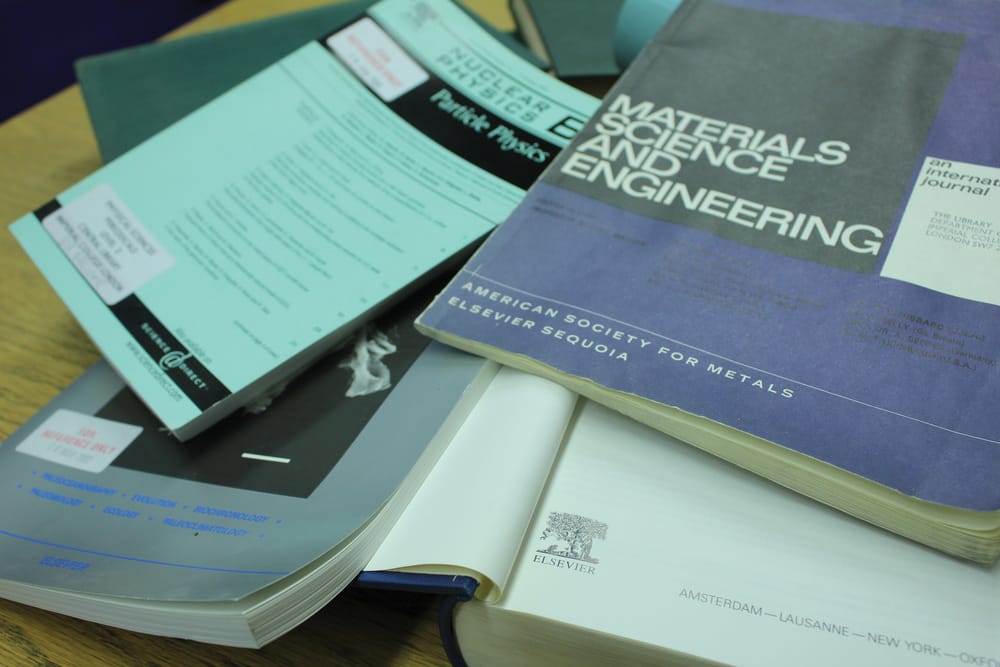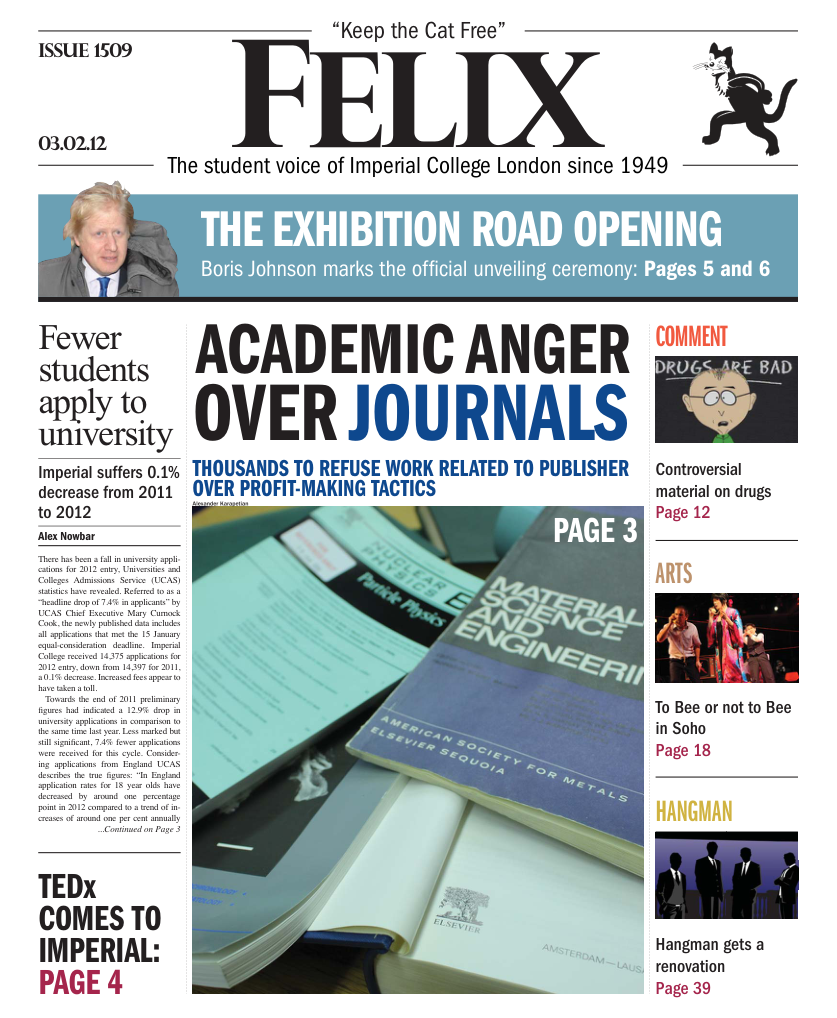Academics to boycott Elsevier journals
Thousands to refuse work related to publisher over profit-making tactics

Following a damning blog post by Cambridge mathematician Professor Tim Gowers, nearly 3,000 academics have signed an online pledge to cease all work with Elsevier, a Dutch journal publishing house responsible for many publications including The Lancet.
Elsevier have come under frequent criticism for their business practices, including issues regarding the journal Chaos, Solitons & Fractals, which is regarded as a “joke” by many mathematicians. They also admitted to publishing six “fake” journals, existing purely to print articles favourable to products by the drug giant Merck & Co. In 2009, the BBC also accused Elsevier of “shill reviewing” by paying academics who contributed to a psychology book if they gave it 5 star reviews on popular book-selling websites. The company later attributed this to an employee error.
However, Professor Gowers’ post deals with something a lot more fundamental – the access to publicly funded research. He details four criticisms (amongst many) that lead to his choice to publicly boycott the company.
His first complaint is with Elsevier’s policy of making libraries subscribe to journal “bundles”. This forces them to subscribe to hundreds of journals, many of which being unwanted and of little interest, should just a few core titles be desired. Professor Gowers cited an example of the Fractals journal being one that many libraries end up subscribing to out of necessity, even with its dubious integrity.
This is in addition to his complaint of “extraordinary” high costs. Journal prices have increased yearly, squeezing already tightened library budgets. In 2011, Felix reported on how the Director of Library Services at Imperial College, Deborah Shorley, is leading a campaign by Research Libraries UK to pressure publishers such as Elsevier and Wiley to reduce subscription costs. Imperial College Union subsequently passed a policy demanding that these publishers cut the prices on their products. These price increases occur regardless of massive increases in profits – in 2009, Elsevier made a turnover of £1.6bn; up from £1bn in 2005.
...access to knowledge [...] should be granted to anyone Dr Łukasz Grabowski – Department of Mathematics
Professor Gowers went on to say that libraries can find their access to Elsevier journals cut off if they attempt to negotiate a better contract, something he calls “ruthless”.
He is also concerned about Elsevier’s support of the Research Works Act, a piece of legislation in United States Congress which would remove free access to publicly funded research. This bill was unveiled at a similar time to 31 donations from Elsevier and connected persons to members of the US legislature. Elsevier were also prominent supporters of the SOPA and PIPA bills that were recently shelved.
Academics worldwide have expressed their anger at Elsevier by signing the pledge, with most ticking all three boxes to say they will not publish, referee, or perform editorial work on any Elsevier journal.
In a statement to Felix, Imperial mathematician Dr Andrea Brini expressed his anger with Elsevier’s practices, especially regarding the Fractals fiasco. In addition, he made clear his opposition to making profit out of scientific work, as for-profit publishers such as Elsevier do. He went on to say: “in [a] few ridiculous instances (and yeah, Elsevier is one of them), we even do the formatting [of papers]! And all that, for free – namely, at the taxpayers’ expense, with zero effort on their part.”
Another mathematician at Imperial College, Dr Łukasz Grabowski, echoed these sentiments. He told Felix: “[What is] most important for me personally is that the access to knowledge and education should be granted to anyone who desires them. This is unfortunately in contradiction with the interests of profit-oriented publishing companies.”
Imperial mathematicians were not the only academics from the College to make public their decision to boycott Elsevier. Biologists, engineers, chemists, and others have also joined them. A notable name is Professor Henry Rzepa, who accused Elsevier of “a partial abrogation of their duty for longer term curation of articles they publish” in the comment against his pledge, with regard to their “less than helpful attitude” with regard to publishing integral parts of a publication.
Mrs Shorley made clear her opinion that this was a matter for lecturers, saying, “All researchers should think carefully about where they publish and for whom they review. They are providing free resources and services, and they should consider whether the companies they publish with have values that are aligned with those of the academy or not.”
However, she did acknowledge that the costs of Elsevier journals have been a problem, with concern over the charges and licensing policies being had for “many years”. She did note, however, that these are with a number of publishers and not just Elsevier.
This is not a decision that academics take lightly. Speaking to Felix, Dr Paula Salgado from the Centre for Molecular Microbiology and Infection said “As an early career researcher, [...] choosing not to publish or review for those journals can have a serious impact on the careers of less established scientists.”
Regardless of the Elsevier boycott and disapproval of the practices of for-profit publishers in general, there is no negative feeling about the future. Instead, many feel that this is an opportunity to revolutionize how journals are handled. A notable example of this is the arXiv preprint server, ran by Cornell University, though articles on this server are not peer reviewed. There are also publishers such as Mathematical Sciences Publishers who operate on a non-profit basis; an organization that Dr Brini feels may be the way to go.
There are other options too. Dr Łukasz said “I very much hope that the future lies within community-run journals (concerning the actual work which is done, all the journals are community-run anyway), and printing will be outsourced to print-on-demand companies” citing the example of American upstart Scholastica.
However, the most radical solution is proposed by Dr Salgado: “I believe it is time to change the current scientific publications trend and support open access journals and initiatives that allow sharing and open discussions of data and results.” Mrs Shorley added that it will be extremely interesting to see how these progress.









